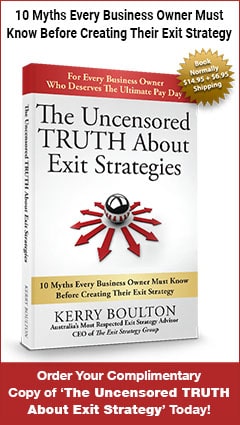Two Ways To Value A Business
It’s just like real estate, where the home is sold based on what the buyer will pay. A default method that most people use for business is a financial valuation, which is taking your profit or your earnings before the interest and tax. If you want to get technical, valuation is a multiple of EBIT – earnings before interest, tax, depreciation and amortization.
You take that figure and multiply by a certain number. That number can be whatever it might be — for a particular industry, there might be an accepted benchmark. For example, if you’re a smaller micro business, they’re often valued at about 1-2x net profit. Depending on the industry, it could be higher than that, but, in general, that’s a common method.
A better method is if you can be a strategic fit for someone. Say you’re in a business that supplies pet food. Maybe you’ve got some amazing recipes for a particular type of pet food. What if you could think of a business that would be able to take your recipes and make them grow?
Maybe they already have an existing client base that your product fits into beautifully and, instead of trying to sell your individual product to stores, they can take it and put it in a nationwide group of stores. Your product is going to be worth a lot more in their hands than it is in yours.
So, if you can think about something strategically, whether it’s a product or service that might bolt on to another bigger firm and be leveraged into a much higher return for that business, they will probably pay you more for your business. And that’s why it’s called a strategic sale.
In my book Million Dollar Pay Day, I interviewed the owner of a business who had developed a fabulous system for technicians in the field who could, in real time, put in their work hours, the work functions they’d performed, and what materials they’d used. The business, called Skybridge, had thousands of technical contractors all over Australia, and they used this system in their industry, which was installing satellites for Foxtel and others around Australia.
The business was able to be sold strategically to a group of private equity investors who could see the opportunity to replicate the system across other different industries, which is something that the business owner himself would not have been able to do. The system needed private equity to provide the extra capital for the business and the connections and the expertise.
Strategically, the investors could see how they could grow their business and get a 5-10x multiple on what they paid for the business over the next five years. That’s an example of a real strategic sale.
Regardless of whether a valuation is financial or strategic, it still boils down to the business being valued for whatever a buyer is willing to pay.



Recent Comments